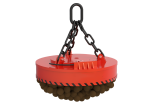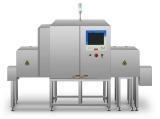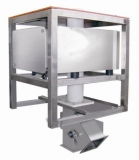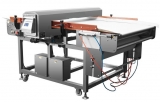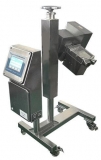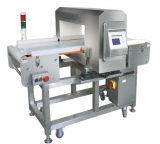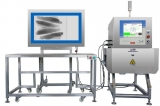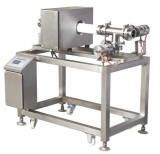
J-Magnetics-A reliable magnetic separation equipment solution provider!

Contact :Joshua Shen
Email: joshua@j-magnetics.com
Add: Yueyang Tower District, Yueyang City, Hunan Province, China.
Metal Detector
Industrial metal detectors are used in the pharmaceutical, food, beverage, textile, garment, plastics, chemicals, lumber, mining, and packaging industries.
Contamination of food by metal shards from broken processing machinery during the manufacturing process is a major safety issue in the food industry. Metal detectors for this purpose are widely used and integrated into the production line.
Current practice at garment or apparel industry plants is to apply metal detecting after the garments are completely sewn and before garments are packed to check whether there is any metal contamination (needle, broken needle, etc.) in the garments. This needs to be done for safety reasons.
The basic principle of operation for the common industrial metal detector is based on a 3 coil design. This design utilizes an AM (amplitude modulated) transmitting coil and two receiving coils one on either side of the transmitter. The design and physical configuration of the receiving coils are instrumental in the ability to detect very small metal contaminates of 1 mm or smaller. Today modern metal detectors continue to utilize this configuration for the detection of tramp metal.
The coil configuration is such that it creates an opening whereby the product (food, plastics, pharmaceuticals, etc.) passes through the coils. This opening or aperture allows the product to enter and exit through the three coil system producing an equal but mirrored signal on the two receiving coils. The resulting signals are summed together effectively nullifying each other.
When a metal contaminant is introduced into the product an unequal disturbance is created. This then creates a very small electronic signal. After suitable amplification a mechanical device mounted to the conveyor system is signaled to remove the contaminated product from the production line. This process is completely automated and allows manufacturing to operate uninterrupted.
